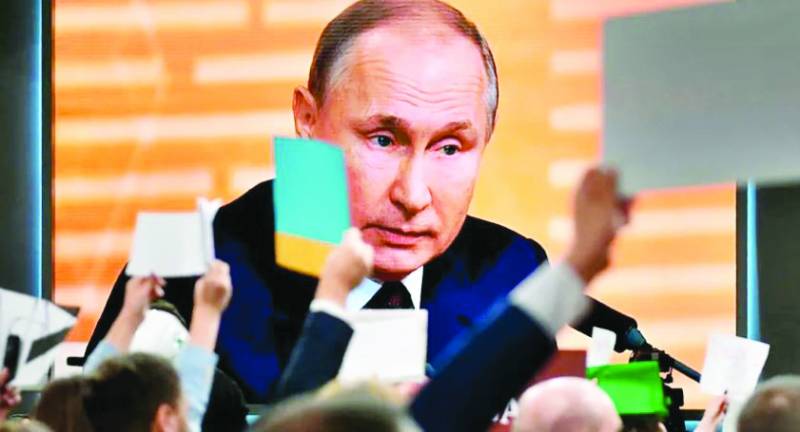MOSCOW - Russian President Vladimir Putin has proposed sweeping changes to the country’s political system that would shift powers away from the presidency in favour of parliament and the prime minister.
The changes, which triggered the resignation of the prime minister and government, are widely seen as giving Putin, 67, scope to extend his grip on power once he leaves the presidency in 2024. He has dominated Russian politics, as president or as prime minister, for two decades.
Putin on Thursday signed a decree appointing Mikhail Mishustin as prime minister, shortly after the former head of the tax service won the backing of parliament.
Mishustin’s elevation is part of a sweeping shake-up of the political system announced by Putin on Wednesday, which led to the resignation of Dmitry Medvedev as prime minister along with his government. Here’s what the proposed constitutional changes are and different scenarios for how things could pan out:
A STRONGER PARLIAMENT AND PM
Putin wants parliament to be handed the power to appoint the prime minister. At the moment, the president picks the prime minister and parliament then approves the nomination. Under Putin’s proposals, the president would not be able to block the parliament’s pick. Parliament would also be handed the power to name the cabinet at the prime minister’s recommendation.
A WEAKER PRESIDENT
Putin wants to limit future presidents to a maximum of two terms in power and to weaken the presidency by redistributing some of its powers among other institutions. Putin himself is currently serving out his fourth term. Putin also wants new rules that would disbar any future presidential contenders who had lived in the country for less than 25 years. Nor, under Putin’s new rules, could any future president have ever held foreign citizenship or a residency permit abroad. The residency rules are seen as targeting political exiles or opposition figures who may have studied abroad.
STATE COUNCIL
Putin wants to boost the status of the State Council, currently a low-profile body that advises the president, and for its role to be enshrined in the constitution for the first time. The council is composed of the heads of Russia’s regions. Putin said he was eager to significantly increase the decision-making power of regional leaders at the federal level, suggesting the council will gain extra powers.
PUTIN’S OWN OPTIONS
The Russian constitution prevents Putin, 67, from immediately serving another presidential term when he steps down in 2024 and he is in any case proposing to change the constitution to limit the number of terms anyone can serve to two. That suggests he will definitely step down in 2024.
Here are some roles Putin could take on instead that would allow him to retain power and influence.
Putin served as prime minister from 2008 to 2012, when his ally Dmitry Medvedev took over as president after Putin was forced to step down due to constitutional rules. Under his proposed changes, the role of prime minister would become more powerful, so Putin might be tempted to return to his old job.
The State Council, a body which advises the president, would be handed additional powers under Putin’s proposed shake-up. One option would be for Putin to head the council, allowing him to extend his influence that way.






